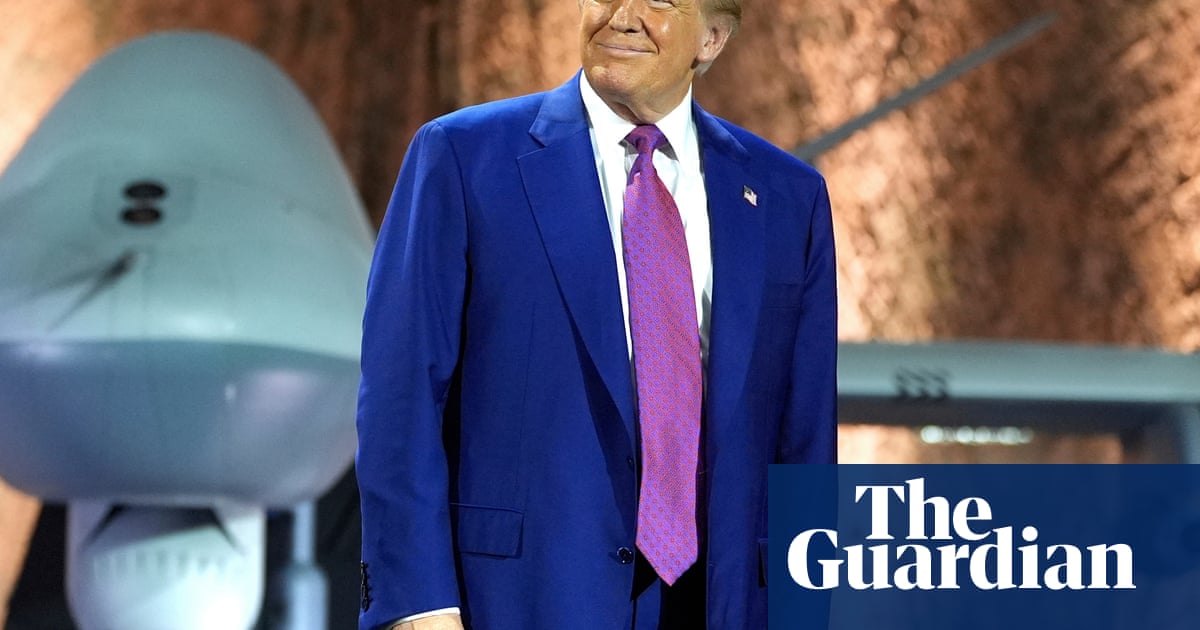Donald Trump saysIranhas “sort of” agreed to the terms of a deal on the future terms of its nuclear programme.
On a visit to Doha, the US president said: “I want them to succeed. I want them to end up being a great country. But they cannot have a nuclear weapon. It is very simple really. It’s not like I need to give you 30 pages worth of details. It is only one sentence – they cannot have a nuclear weapon.”
Referring to the possibility of a US attack on Iran, he added: “We are not going to make any nuclear dust in Iran. I think we’re getting close to maybe doing a deal without having to do this. You probably read today the story about Iran. It’s sort of agreed to … the terms.”
Trump’s remarks add credence to reports that Steve Witkoff, his special envoy to the Middle East, gave the Iranian negotiating team in Oman at the weekend the outlines of a proposal that Abbas Araghchi, Iran’s foreign minister, took back to Tehran.
Araghchi has been urged by mediators to accept zero uranium enrichment for up to three years to build trust. This period would end with Iran reverting to enriching at 3.75% purity, the level set out in the 2015 nuclear agreement that Trump quit in 2018. In the meantime, Russia could provide Iran with uranium for its civil nuclear programme.
Ali Shamkhani, a senior political, military and nuclear adviser to Iran’s supreme leader, Ayatollah Ali Khamenei, suggested Iran was willing to compromise and a deal was possible if Israel’s prime minister, Benjamin Netanyahu, did not influence the process.
He said Tehran would commit to: never making nuclear weapons; getting rid of its stockpiles of highly enriched uranium; enriching uranium only to levels needed for civilian use; and allowing inspectors to supervise the process – all in exchange for the immediate lifting of economic sanctions.
Mohamed Amersi, of the Wilson Center thinktank in Washington, said “as a compromise Iran could be persuaded to stop enriching to the levels to which they are entitled for a mutually acceptable timeline before resuming once trust has been built by both sides”.
He added: “Alternatively, Iran could consider inviting Saudi Arabia and even the US to invest in Iran’s nuclear programme.”
Trump praised the role of Qatar and made reference to Israel’s belief that Iran’s nuclear sites should be attacked, saying: “Iran should seriously thank the emir of Qatar, because there are others who want to deal a hard blow to Iran, unlike Qatar.”
Sign up toFirst Thing
Our US morning briefing breaks down the key stories of the day, telling you what’s happening and why it matters
after newsletter promotion
The president’s tone indicated his personal desire to reach a deal but both the US and Iran have large constituencies that distrust the other side and it is not clear that an agreement is secure. For Iran, the benefits of lifting sanctions on a broken economy may outweigh the ingrained distrust of the US. No date has been set for a fifth round of talks.
Araghchi’s aides are to brief European officials from France, Germany, the UK and the EU on Friday setting out the progress of the talks. Some Iranians have portrayed Europe as angry and fearful at being excluded from the process.
